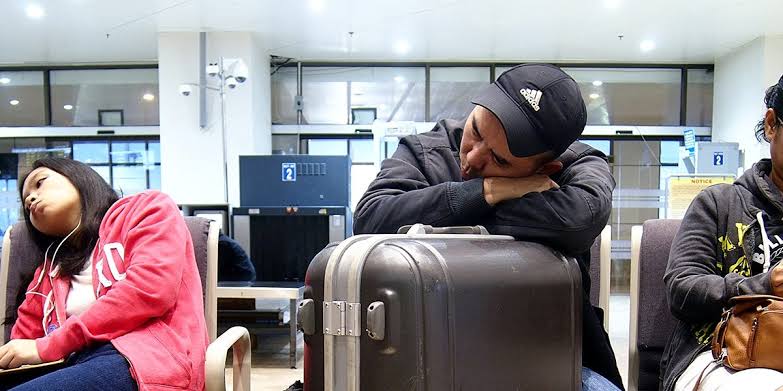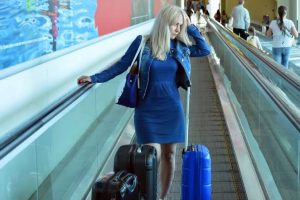
How you respond to stress during the COVID-19 pandemic can depend on your background, your social support from family or friends, your financial situation, your health and emotional background, the community you live in, and many other factors. The changes that can happen because of the COVID-19 pandemic and the ways we try to contain the spread of the virus can affect anyone.
If you’re still fretting about leaving, say, your niece’s holiday present at home, you could even go as far as packing it way in advance in the luggage you know you’ll be carrying so that it’s there from the start. “If there is something that’s stressing you out and you can do something about it right now, do it. If you can’t, put it on a to-do list to do at another time,” Rego says. Here are more logistical travel tips to make the whole process a little less chaotic.
People with pre-existing mental health conditions or substance use disorders may be particularly vulnerable in an emergency. Mental health conditions (such as depression, anxiety, bipolar disorder, or schizophrenia) affect a person’s thinking, feeling, mood or behavior in a way that influences their ability to relate to others and function each day. These conditions may be situational (short-term) or long-lasting (chronic). People with preexisting mental health conditions should continue with their treatment and be aware of new or worsening symptoms. If you think you have new or worse symptoms, call your healthcare provider.
Bring a mini-medical kit. No need to go overboard, just keep a small bag stocked with essentials: Band-aids, alcohol pads, Neosporin, Pepto Bismol, pain relievers, cortisone cream, and cold medicine. We hope you won’t need to dip into your stash of supplies, but better safe than sorry.

Your health provider may also recommend medication to treat your symptoms. Benzodiazepines are a type of anti-anxiety medication that can quickly reduce panic symptoms. Your doctor may prescribe a benzodiazepine, such as Xanax (alprazolam), Ativan (lorazepam), or Klonopin (clonazepam), to ease the intensity of your panic attacks.
If you know you’re going to be up at night worrying that you’ll forget something, or if you’ll completely freak and beat yourself up if you do end up forgetting that precious item, write it down, Rego says. Then, put that reminder somewhere visible (the front door, a bathroom mirror). “It’s a productive action,” he explains.
Vacationing alone can be adventurous, liberating, and rewarding, especially if you’re an experienced traveler. But, if you’re a less seasoned jetsetter or already pre-disposed to pre-trip jitters, the idea of traveling solo may kick your anxiety level into overdrive. Luckily, there’s a simple solution: travel with a trusted friend.

If you’re at the airport or train station and could really stand to chill a little, it’s OK to have a pre-flight glass of wine or beer to unwind, Carmin says. Of course, you know yourself better than anyone, so skip this one if alcohol isn’t for you.
Keep a suitcase packed. Rather than repacking toiletries every time, Boyes keeps duplicates of items she uses frequently, such as her toothbrush and toothpaste. She places one in a suitcase and keeps one at home. She also keeps clothing in her suitcase that she knows she will wear on the road. This allows her to put less time and energy into preparing the night before when she’s usually still working late.
Sometimes just thinking about how you’re going to pay for a trip can cause heart palpitations. “Studies have found that planning a vacation—and specifically the financial cost associated with it—is the most stressful part of travel,” says Scott Keyes, the founder of Scott’s Cheap Flights, a flight deal website.
The coronavirus disease 2019 (COVID-19) pandemic may be stressful for people. Fear and anxiety about a new disease and what could happen can be overwhelming and cause strong emotions in adults and children. Public health actions, such as social distancing, can make people feel isolated and lonely and can increase stress and anxiety. However, these actions are necessary to reduce the spread of COVID-19. Coping with stress in a healthy way will make you, the people you care about, and your community stronger.
“What you notice after a while is that you start to give yourself advice like you are talking to someone else,” he says. For example, maybe you hate turbulence and feel like the plane is going to fall out of the sky. Try saying out loud, Moser says, “But knows air travel is very safe and even safer than driving. knows that this will pass.”
If you are someone who needs to feel in control in order to relax, planning an itinerary and researching your destination is a good way to relieve some of those pre-trip jitters. Knowing which local restaurants cater to your dietary needs, when must-see museums or attractions are open, and how to access public transportation can go a long way to making you feel prepared to spend time in a new place.
Give yourself plenty of time before — and after — your flight. The airlines generally recommend getting to the airport no later than two hours before a domestic flight and three hours before an international flight. Everyone’s tolerance for waiting is different. Boyes prefers to get to the airport early to make it through security and have time to take a deep breath in the lounge, and does the same thing coming home. “We always go to the lounge when we come back, just to relax before we come home,” she says. If you don’t have lounge access, you could grab a cup of tea and enjoy a quiet moment before heading to the car or cab line.
When traveling, it’s not uncommon to focus more on your symptoms. One way to manage them is to put your focus elsewhere. Instead of concentrating on the sensations in your body, try to bring your attention to other activities. Africanewsguru update.













